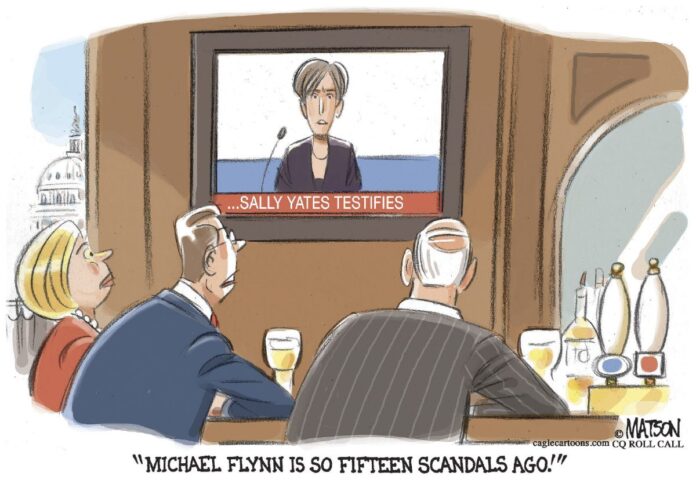BY JONATHAN HAFETZ
President Donald Trump’s effort to bar travel to the United States by citizens of several Muslim-majority nations continues to face stiff resistance in the courts. Two federal judges have blocked Trump’s new executive order, issued after multiple courts had halted enforcement of his initial order.
But a judicial defense of the new order is taking shape as legal challenges move to the next stage, with federal appeals courts in Seattle and Virginia scheduled to hear challenges. On Monday, Justice Department attorneys argued for the ban in the 4th Circuit Court of Appeals. And on May 15, in Seattle, government lawyers will present arguments in the 9th Circuit Court of Appeals. The crux of this defense rallies around the principle of executive power, not the person exercising it.
A recent opinion by Jay Bybee, a judge on the U.S. Court of Appeals for the Ninth Circuit, outlines this strategy. A three-judge appeals panel had previously refused to stay a district court’s order barring enforcement of Trump’s initial order, and the full Ninth Circuit refused to reconsider that decision. In dissent, Bybee claimed the higher ground.
Bybee acknowledged judicial review of executive action as a cardinal principle of constitutional law. But he reduced that review to a virtual rubber-stamp. Judges, he insisted, cannot look behind a president’s stated reason for barring immigration from particular countries and must defer to the president’s assessment of U.S. security interests.
At the same time, Bybee called Trump’s personal attacks on the judges “out of all bounds of civic and persuasive discourse.” Worse, he said, such attacks undermine the rule of law by treating courts as a “mere political forum.”
Bybee, in short, outlines a defense that rescues broad presidential power from the president now exercising it. Judges, he suggests, must separate the larger principles from the man.
Larger principles are indeed at stake. But those principles support meaningful judicial scrutiny of executive action by any president, not just Trump.
The Supreme Court has recognized the government’s broad power over immigration. Under the so-called plenary power doctrine, Congress can make some rules for noncitizens in enacting immigration policy that would be unconstitutional if applied to U.S. citizens.
But the court has also imposed important limits on this power. In INS v. St. Cyr, for example, the court ruled that eliminating habeas corpus review of deportation orders — even for noncitizens convicted of serious crimes — would raise grave constitutional problems.
More recently, in Kerry v. Din, the Supreme Court upheld the denial of a visa to the Afghan husband of a U.S. citizen wife where the government offered only general security grounds as the explanation. However, Justice Anthony M. Kennedy’s separate opinion, which controlled the case’s outcome, emphasized that judges could conduct more searching review to address plausible allegations of bad faith. Such allegations could, for example, include a government official’s assertion of national security as a pretext for impermissible bias against an individual or a group.
Challenges to Trump’s travel ban present such allegations. Leading experts from both parties reject Trump’s national security rationale for the ban, as does a recent Department of Homeland Security report finding that country of citizenship is not a reliable indicator of potential terrorist activity. Meanwhile, Trump and his close advisers have repeatedly suggested that the travel ban is motivated by hostility to Muslims. One top adviser, former New York City Mayor Rudolph Giuliani, said that Trump sought his counsel on how to make a Muslim immigration ban legal.
Most important, seismic shifts in constitutional law have rendered the plenary power doctrine increasingly obsolete. The doctrine originated with a Supreme Court decision from 1889 upholding racist policies excluding immigrants from China. That decision predated by seven years the court’s now notorious ruling in Plessy v. Ferguson sanctioning legal segregation in America — a ruling the court eventually overturned in Brown v. Board of Education.
Constitutional principles of nondiscrimination, to be sure, may apply more flexibly to policies concerning the admission of noncitizens to the United States. But distinctions motivated by animus toward a particular group or religion fall outside today’s constitutional mainstream even in immigration law.
In a rare moment of self-awareness, Trump suggested that courts should not consider his personal faults in evaluating the travel ban. “This goes beyond me,” he said, “because there will be other presidents.” Trump is right. And that is exactly why courts must maintain checks: to restrain not just Trump, but any future president from running roughshod over the Constitution.





